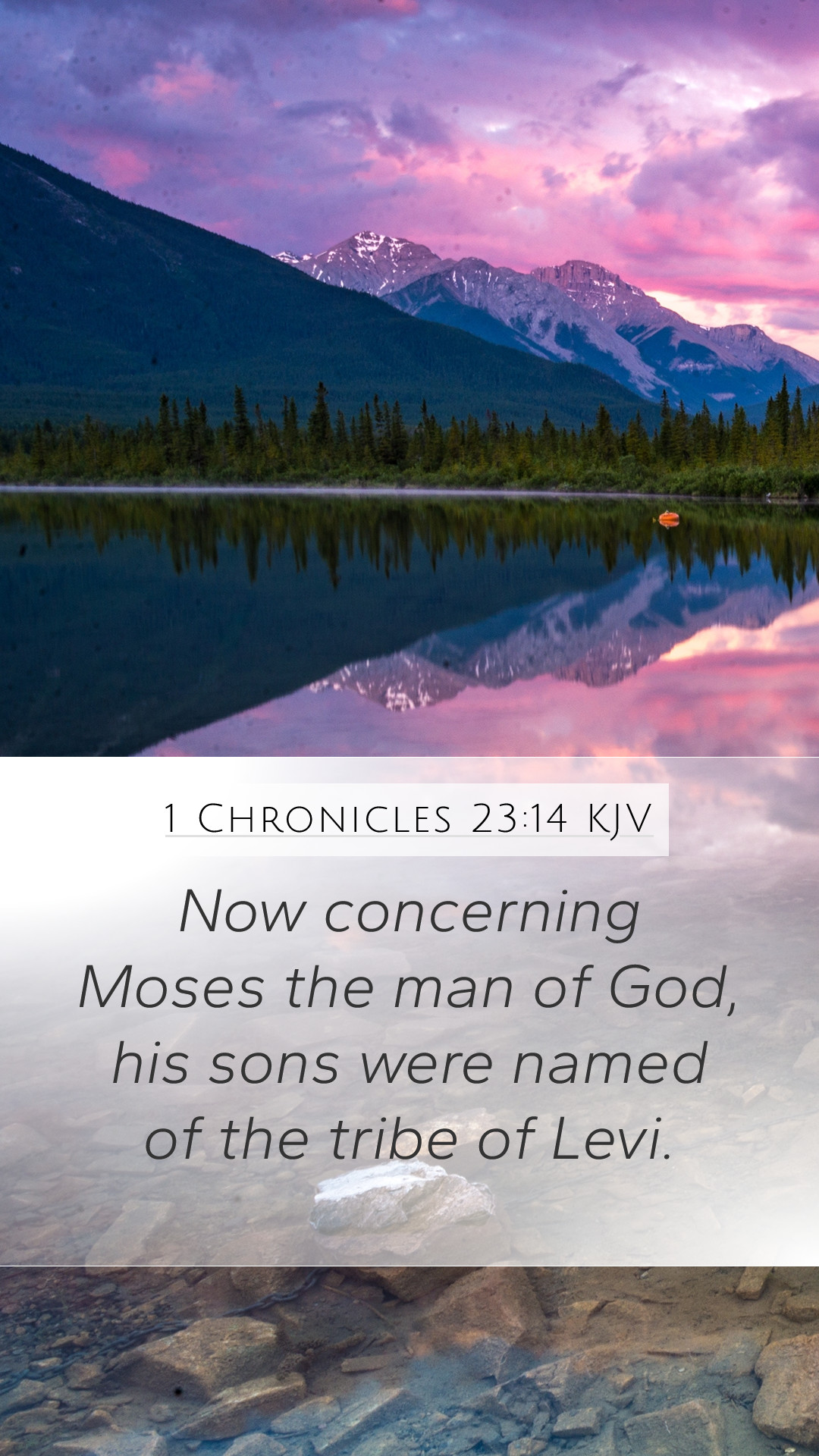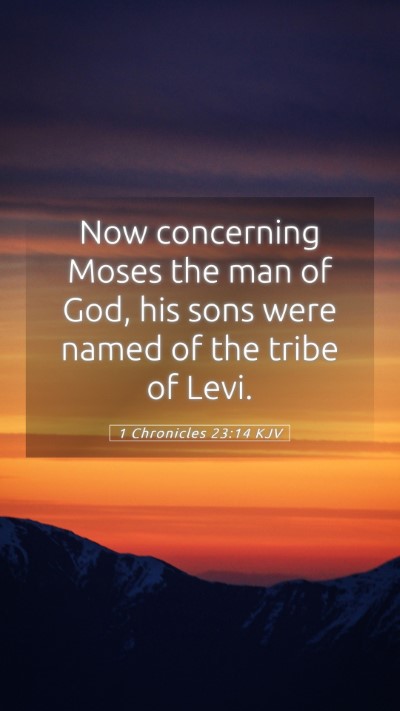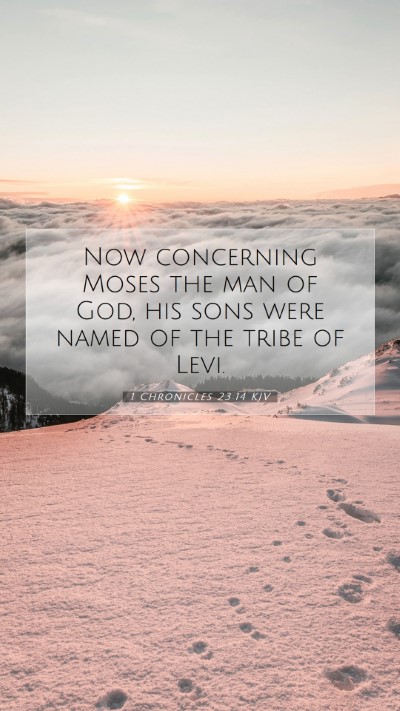Bible Verse Meaning: 1 Chronicles 23:14
1 Chronicles 23:14 states, "Now concerning Moses, the man of God, his sons were named of the tribe of Levi." This verse serves as a pivotal reference in
understanding the Levitical priesthood and the legacy of Moses. Here, we explore the foundations and implications of this scripture through various public domain commentaries.
Significance of 1 Chronicles 23:14
This verse highlights the lineage of Moses, indicating that his descendants played a critical role within the tribe of Levi. It emphasizes the
importance of family heritage in the context of serving in religious duties. According to the commentaries, it acknowledges Moses not only as a leader
but also positions his descendants as important figures in Israel's spiritual history.
Bible Verse Interpretations
-
Matthew Henry:
Henry notes the distinction God makes in assigning responsibilities and honors to His servants and their progeny. Moses, as the mediator of the
covenant, has his family recognized as integral to the worship practices and rituals carried out by the Levitical priesthood.
-
Albert Barnes:
Barnes emphasizes the continuity of Moses’s legacy through his children, illustrating how God’s plan unfolds through generations. The verse indicates
that the priestly activities are not only limited to Aaron but also extend to those descended from Moses, signifying the divine acknowledgment of Moses's
faithfulness.
-
Adam Clarke:
Clarke draws attention to the reference to Moses as "the man of God," which reflects on his prophetic and leadership role within Israel. He notes that
the verse not only denotes the priestly aspects but also signifies the importance of holiness and dedication in serving God. It also serves as a reminder
of the esteem with which Moses is regarded.
Biblical Exegesis and Contextual Background
To fully grasp the meaning of this verse, we must consider the historical context surrounding the Levitical priesthood. After the Israelites' escape from
Egypt, the role of the priesthood was established to manage the sanctuary, offer sacrifices, and maintain the rituals essential to their worship. It is critical
to note that the lineage of priests had been established, but Moses's family was given prominence because of his unique relationship with God, the lawgiver.
Application of 1 Chronicles 23:14
Understanding this verse today can guide individuals in recognizing the weight of spiritual legacy and heritage. It implores believers to consider the faith
they pass down through generations. It can be seen as a call to cultivate a life devoted to God, creating a lasting impact within families and communities.
Bible Study Insights
For those engaged in Bible study groups or seeking online Bible study, this verse offers a rich focal point for discussion on
family influence in faith. It also provides insight into how God’s plan extends beyond one individual, affecting multiple generations.
Related Scripture References
- Exodus 28:1: Details the appointment of Aaron and his sons as priests.
- Numbers 3:10: Discusses the designation of the Levites to the priestly service.
- Hebrews 7:14: Refers to the priesthood being associated with the tribe of Judah in addition to the Levites.
- Deuteronomy 33:10: Speaks to the duties of the Levites, emphasizing their role in teaching God's law.
- Malachi 2:7: Highlights the importance of the priest's knowledge and their role as messengers of God.
Conclusion
The verse 1 Chronicles 23:14 offers profound insights into the significance of spiritual leadership and legacy. It extends a challenge to current believers to
recognize their roles not only in their own faith journeys but also in the faith of future generations. The study of such verses not only enhances our Bible
study insights but also contributes to a deeper understanding of the overarching narrative of Scripture, which intertwines the past, present, and future of
God's people.


